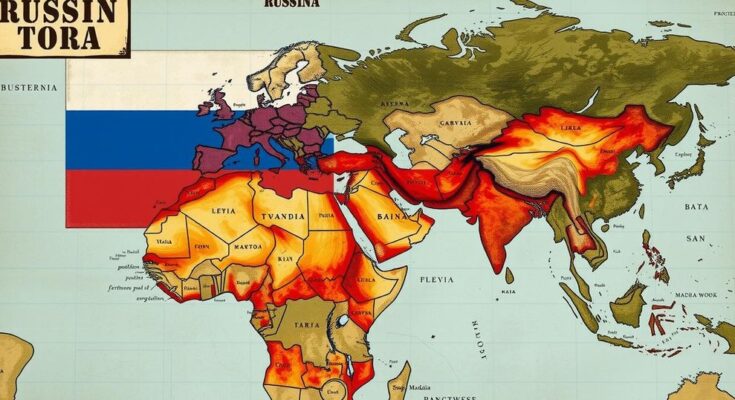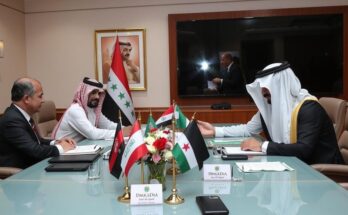The article examines the erosion of Russia’s security influence in Africa following its military failures in Syria. With the impending withdrawal from key bases, doubts arise regarding Moscow’s capacity to support its African allies, prompting a reassessment of its strategy. As Russian military power faces challenges, the Kremlin is likely to seek new methods of maintaining influence through cooperation with regional powers rather than through direct interventions.
The recent upheaval in Syria has significantly undermined Russia’s previously projected security influence in Africa. Following President Bashar al-Assad’s loss of power, Russia’s inability to protect its ally has prompted concerns regarding its capacity to serve as a stabilizing force for African regimes. The withdrawal from strategic bases in Syria, particularly Tartus and Khmeimim, has jeopardized logistics essential for military deployment and support in Africa, as these locations previously facilitated the supply of arms and personnel to conflicts across the continent.
The fallout from Syria extends to Russia’s military engagements in countries like Libya, Mali, and Sudan, where it has relied heavily on resources and support derived from its Syrian presence. As fears regarding Russia’s effectiveness as a security guarantor grow, African leaders are questioning Moscow’s reliability in times of crisis. The Kremlin’s strategic decisions following the Assad regime’s fall reflect a need to reassess its military posture and influence in Africa.
Experts have highlighted that the diminished Russian footprint in Syria could compel Moscow to engage more with Africa’s regional powers, attempting to maintain influence through soft power and indirect partnerships. As Russia navigates this precarious situation, the failure of its counterinsurgency model in Syria could lead to a reevaluation of its military approach across Africa, highlighting a shift towards seeking less direct intervention while attempting to preserve commercial interests and influence on the continent.
The article explores Russia’s geopolitical strategy in the context of its military intervention in Syria and the consequent effects on its influence in Africa. Historically, Russia has sought to establish a foothold in the Middle East as a means of projecting power globally; however, recent developments erode its credibility. The loss of military bases in Syria is detrimental to Moscow’s logistical capabilities for supporting mercenaries and supplying arms throughout the African continent. The intertwining of Russia’s military operations in both regions illustrates the broader implications of the Syrian conflict on Africa’s security landscape.
In sum, Russia’s challenges in Syria have severely compromised its role as a security actor in Africa. The loss of key military infrastructure and the inability to project power effectively have fostered skepticism among African nations regarding Moscow’s commitment and capacity. To navigate this complex geopolitical landscape, Russia may need to adapt by focusing on soft power tactics while reconsidering its military strategies, fostering collaborations with local powers to sustain its presence in Africa amid increasing challenges.
Original Source: foreignpolicy.com




